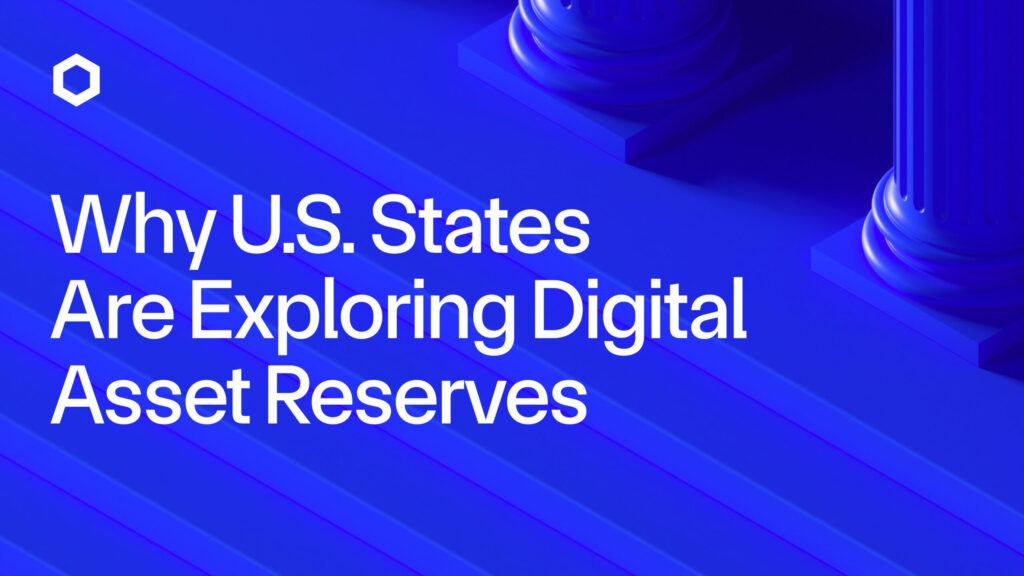In 2025, President Donald J. Trump signed an Executive Order to establish a strategic Bitcoin reserve and digital asset stockpile. This signals a new phase in how public-sector finance might evolve in the digital era. Several U.S. states are now taking similar steps to add Bitcoin and other digital assets to their balance sheets. New Hampshire became the first state to pass a law allowing it to hold bitcoin. Texas and Arizona passed bills related to digital assets, while Wyoming and Utah are exploring similar initiatives.
These moves reflect a growing interest in diversifying state assets and embracing digital innovation.
State treasuries have traditionally relied on fiat currency, government bonds, and other traditional assets to manage liquidity and build reserves. But as Bitcoin and digital assets gain broader adoption, some policymakers are looking to diversify.
Diversifying treasury holdings can help states reduce concentration risk and improve resilience in uncertain markets. While traditional reserves may offer stability, digital assets introduce a new asset class with a distinct risk and return profile. Even a small allocation could potentially serve as a strategic hedge or growth position in the long run.
States are turning to Bitcoin as a potential reserve asset because of its unique monetary properties. The total supply is capped at 21 million coins, with around 95% of those already created by Bitcoin miners. As with gold—a widely used reserve asset—Bitcoin’s scarcity makes it appealing as a potential long-term inflation hedge.
The broader infrastructure supporting digital assets has also matured. Bitcoin’s market size alone now sits at around $2 trillion, supported by growing institutional demand and spot exchange-traded funds (ETFs). Regulated custody providers now offer institutional-grade digital asset storage solutions. Like gold, Bitcoin is classified as a commodity in the U.S. and regulated by the Commodity Futures Trading Commission (CFTC). Ethereum has also been treated as a commodity by the CFTC and other federal agencies, giving it a similar regulatory footing to Bitcoin.
There’s also a signalling effect. Holding digital assets sends a message that a state is open to innovation and willing to lead on emerging technologies. This can attract startups, fintech firms, and technical talent seeking forward-thinking environments. It also positions the state as an early mover in shaping how blockchain integrates with public finances—from custody frameworks to compliance standards. In a competitive economic environment, that edge will prove useful.
Which U.S. States Are Taking Action?
While some legislation references digital assets more broadly, Bitcoin is the most commonly named reserve asset. Below are six examples of how U.S. states are exploring this trend.
Enacted laws
New Hampshire–In May 2025, New Hampshire became the first U.S. state to pass a strategic digital asset reserve law. With the HB 302 bill now passed into law, the state treasurer can invest up to 5% of public funds in digital assets with a market value of over $500 billion. At this stage, only Bitcoin meets this criterion. The assets must be held via secure custody solutions, qualified custodians, or U.S.-regulated exchange-traded products.
Arizona—In May 2025, Arizona signed HB 2749 into law, creating a digital asset reserve fund. The law allows the state to claim ownership of unclaimed digital assets after three years of inactivity. Any rewards earned through staking or airdrops are directed to the new reserve fund.
Legislation passed (awaiting enactment)
Texas—In March 2025, the Texas Senate passed SB 21, a bill proposing a state-managed digital asset reserve. If the bill becomes law, the measure would let the comptroller invest in digital assets with market values over $500 billion.
North Carolina—In April 2025, the North Carolina House passed HB92. If the bill becomes law, it would allow the State Treasurer to invest up to 5% of public funds in qualifying digital assets. The bill also proposes reviewing how North Carolina handles seized or forfeited digital assets.
Rejected, amended, or stalled
Wyoming—In January 2025, Wyoming introduced HB 201, proposing a state-managed Bitcoin reserve. The bill aimed to authorize the state treasurer to invest in Bitcoin as part of the state’s permanent funds. However, the bill was rejected by the committee in March. This was mainly due to concerns over Bitcoin’s volatility and lack of broad legislative support.
Utah—In March 2025, Utah passed HB 230, the “Blockchain and Digital Innovation Amendments” bill. The original version proposed allowing the state treasurer to invest in digital assets with large market capitalizations. But that clause was removed before the final version of the bill passed into law. The law now protects residents’ rights to hold their own digital assets and use blockchain networks freely.
How Chainlink Supports State Digital Asset Reserves
If U.S. states begin holding digital assets in their treasuries, they’ll need secure, verifiable infrastructure to manage risk and maintain public trust. Chainlink Proof of Reserve enables automated, real-time verification that digital assets, such as Bitcoin held by a state, are fully collateralized. By publishing cryptographic attestations onchain, Proof of Reserve helps ensure that reserve balances are transparent, tamper-proof, and independently auditable.
Additionally, the Chainlink Cross-Chain Interoperability Protocol (CCIP) provides a secure framework for transferring digital assets and data across blockchains. If a state’s digital asset holdings span multiple chains, CCIP can enable unified visibility and control over those reserves while maintaining high security standards.
Together, these services enable state treasuries to securely adopt digital assets while maintaining transparency, auditability, and operational integrity across public financial systems.
Conclusion
Digital assets are starting to move from private markets into public finance. While still early, these initiatives show how blockchain technology could become part of how states manage treasury reserves. As legal frameworks evolve, states open to digital asset reserves could set the precedent for how treasuries operate in the digital era.

